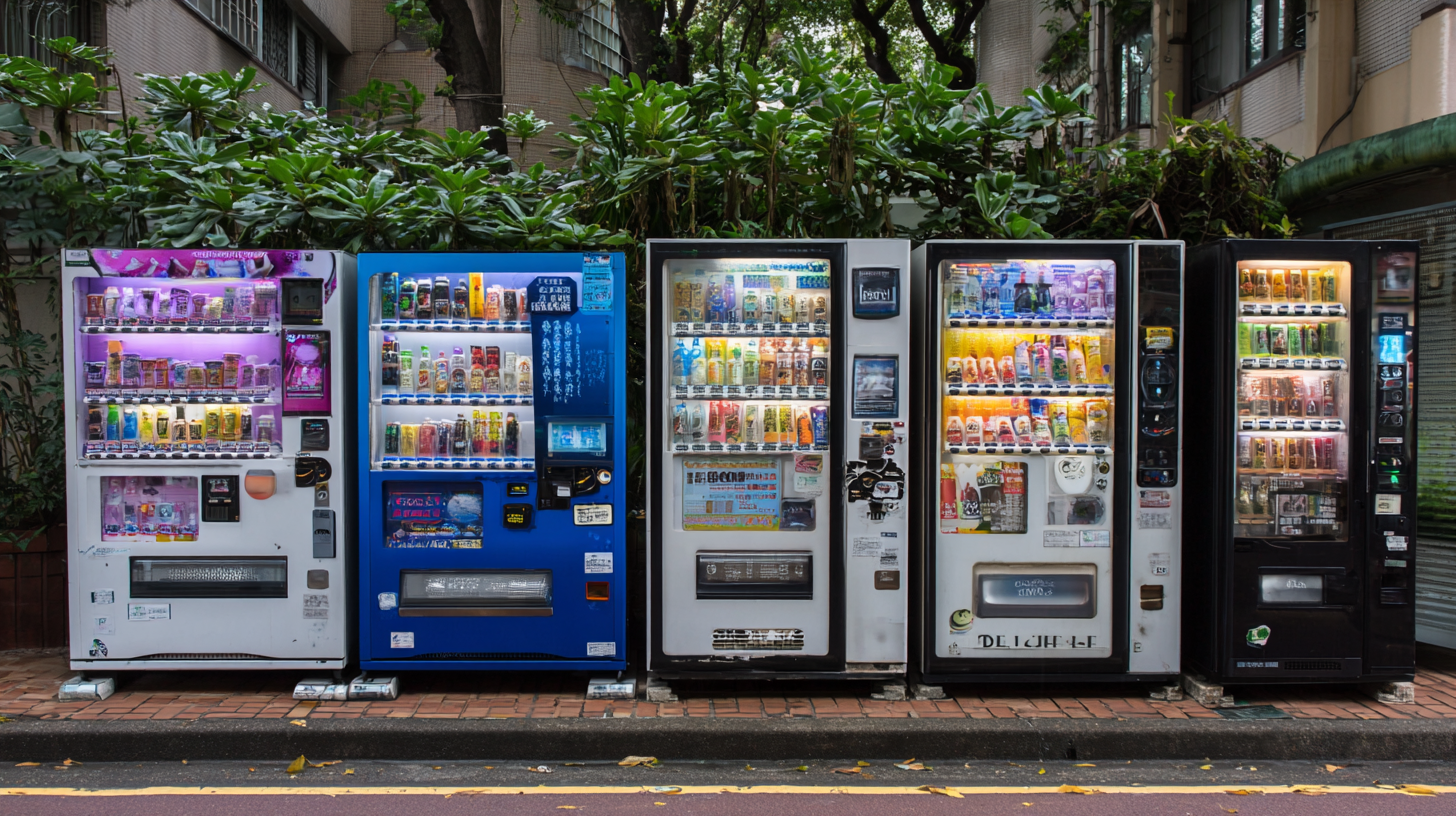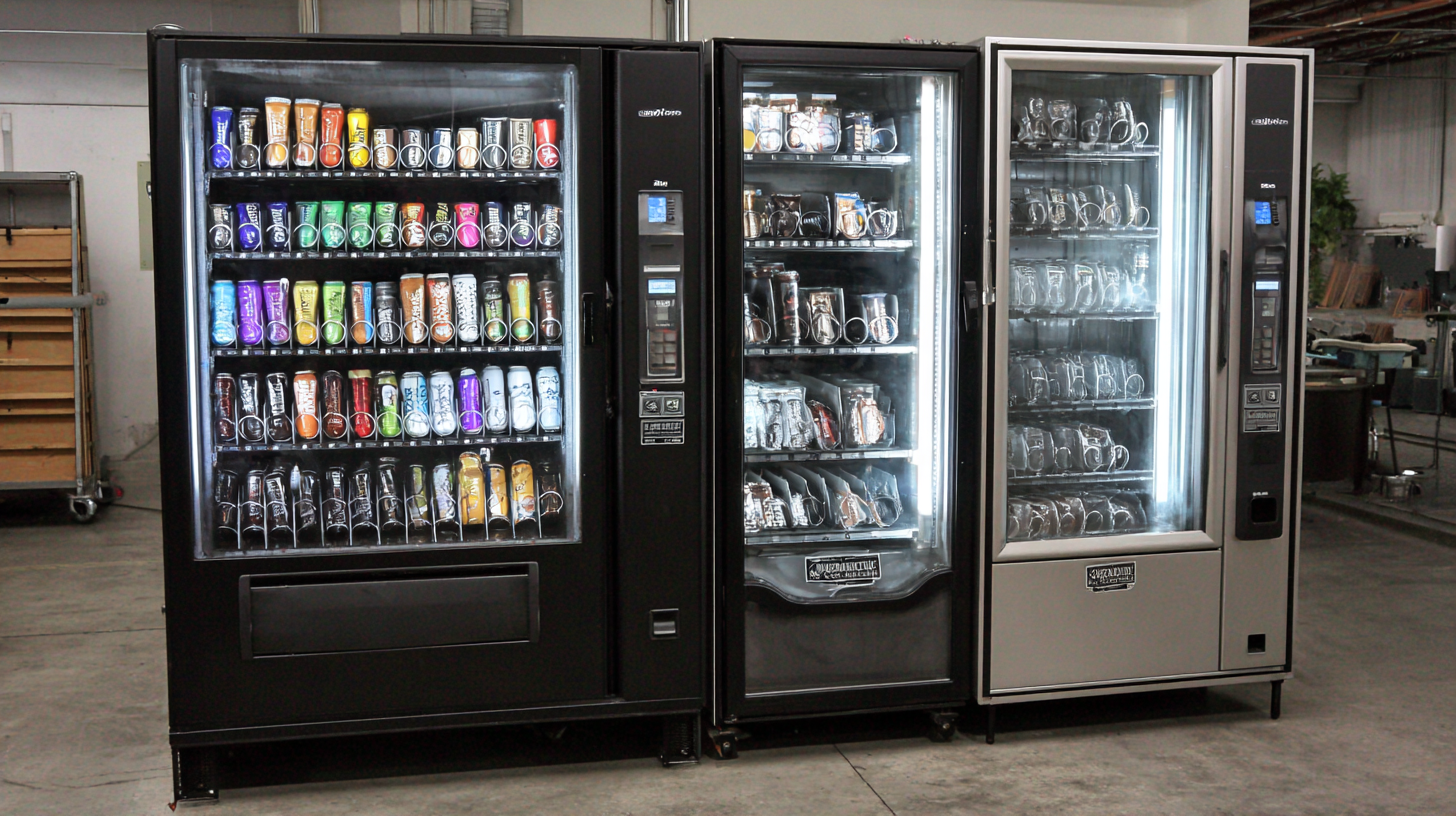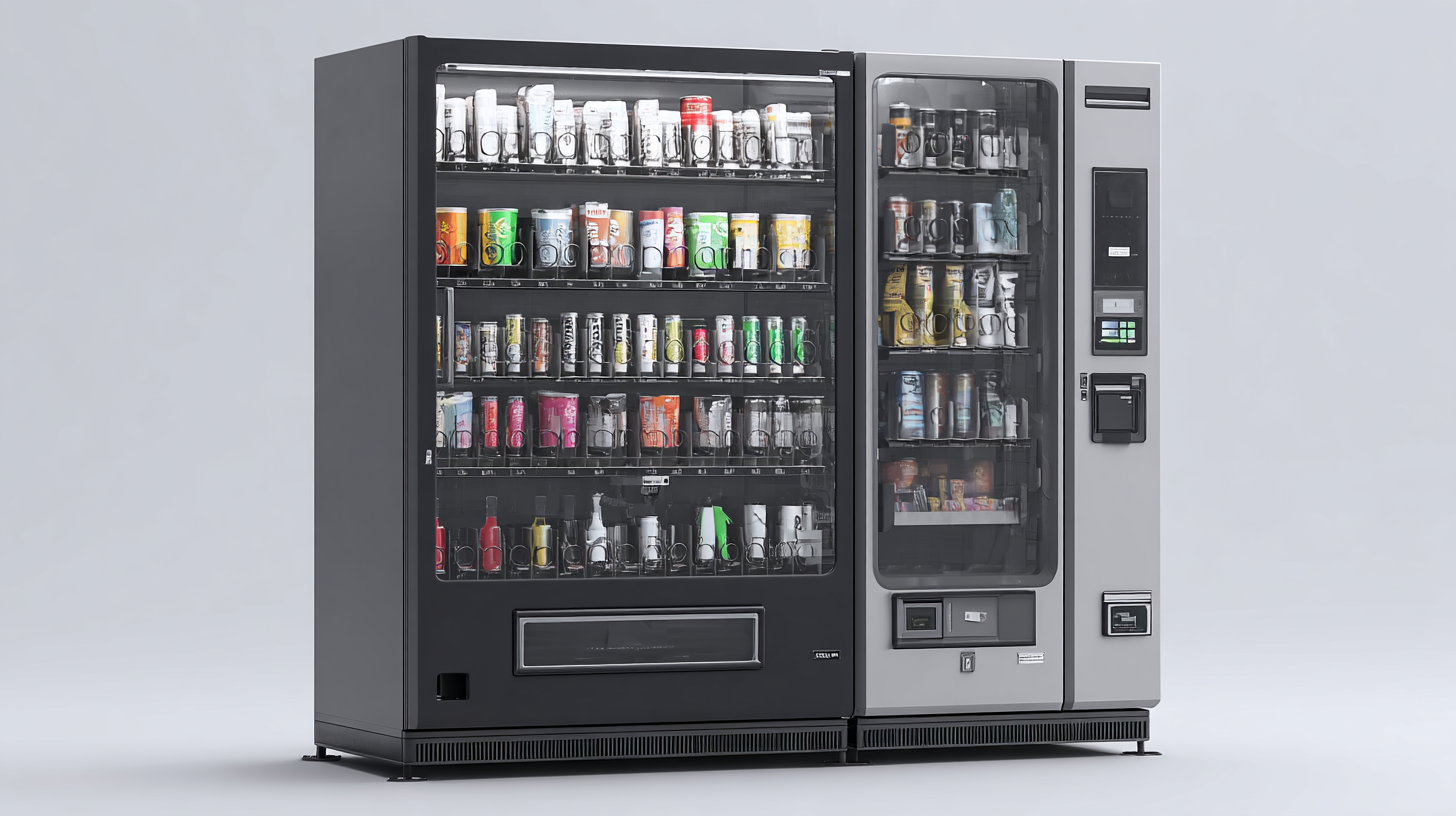
Blog
Navigating Industry Standards: Common Challenges with Best Coffee and Tea Vending Machines
In the competitive landscape of refreshments, coffee and tea vending machines play a pivotal role in meeting consumer demands for quality and convenience. As the industry evolves, manufacturers face numerous challenges in adhering to global standards while ensuring the delivery of world-class beverages. This blog will explore the intricate balance between innovation and regulation in the production of these machines, highlighting the triumphs of Chinese manufacturing that has garnered international acclaim.

As we delve into common challenges encountered in the implementation of best practices, we will showcase how these machines not only provide access to premium coffee and tea but also reflect the pride of Chinese craftsmanship on a global scale. Join us as we navigate through the complexities of industry standards, setting the stage for what it takes to produce exceptional coffee and tea vending machines in today’s market.
Challenges in Maintaining Quality Standards for Coffee and Tea Vending Machines
Maintaining quality standards in coffee and tea vending machines is a multifaceted challenge that manufacturers face in today’s competitive market. According to a recent report by IBISWorld, the coffee vending machine industry in the U.S. generates over $900 million annually, indicating a significant demand for quality beverages on the go. However, ensuring consistency in flavor and freshness is crucial. Vending machines often struggle with maintaining optimal brewing temperatures and durations, which can lead to subpar taste. The Specialty Coffee Association suggests that optimal brewing should occur at temperatures between 195°F and 205°F; even slight deviations can alter flavor profiles negatively.
Additionally, the procurement of high-quality ingredients plays a pivotal role in upholding industry standards. The Tea Association's latest survey highlights that 84% of consumers prefer premium tea blends, yet vending machines frequently utilize pre-packaged powders that lack freshness. Implementing a robust supply chain with stringent quality checks is essential for operators looking to enhance customer satisfaction. As consumer preferences shift towards healthier and higher-quality options, vending machine operators must adapt by sourcing premium ingredients and investing in technology that preserves the integrity and quality of coffee and tea offerings.
Navigating Industry Standards: Common Challenges with Best Coffee and Tea Vending Machines
| Challenge | Impact on Quality | Solution | Frequency of Occurrence |
|---|---|---|---|
| Ingredient Quality Control | Variability in flavor and aroma | Regular supplier audits and testing | High (85%) |
| Temperature Stability | Poor extraction and off-flavors | Thermal monitors and regular maintenance | Medium (60%) |
| Machine Calibration | Inconsistent brew strength | Scheduled calibration protocols | Medium (75%) |
| Cleaning and Maintenance | Build-up of oils affecting flavor | Regular cleaning schedules and training | High (90%) |
| User Interaction | Beverage misuse and incorrect selections | User-friendly interfaces and guidance | Medium (70%) |
Innovation Trends in Coffee and Tea Vending Technology for 2025
As we approach 2025, the coffee and tea vending machine industry is poised for significant innovation driven by advancements in technology and evolving consumer preferences. According to a recent report by IBISWorld, the coffee vending machine market alone is expected to grow at an annual rate of 5.2%, reaching a market size of approximately $1 billion by 2025. This growth highlights a burgeoning demand for high-quality, convenient beverage options, emphasizing the need for vending machines that integrate cutting-edge technology and quality ingredients.
One of the key trends in 2025 will be the incorporation of IoT (Internet of Things) capabilities into vending machines. Machines equipped with smart sensors will not only monitor inventory levels in real time but also provide data analytics to optimize user experience and operational efficiency. A study by Grand View Research suggests that the market for smart vending machines could reach $8.3 billion globally by 2025, showcasing the shift towards automation and data-driven decision-making in the vending sector. Additionally, the increase in plant-based and specialty beverage options speaks to the rising consumer preference for health-conscious choices, necessitating machines that can accommodate a variety of customization options to meet diverse tastes and dietary restrictions.
Regulatory Compliance: Navigating Industry Standards for Vending Machines
Navigating regulatory compliance for vending machines, particularly those dispensing coffee and tea, can be a complex endeavor for operators. The food and beverage industry is subject to various standards and regulations that ensure product safety, quality, and consumer protection. For vending machine operators, being aware of local, state, and federal regulations is crucial. These regulations can dictate everything from ingredient labeling and nutritional information to machine sanitation and maintenance protocols. Failure to adhere to these standards can result in hefty fines or even the loss of vending licenses, making it essential for operators to stay informed and compliant.

Moreover, technology advancements in vending machines introduce additional layers of compliance. Modern machines often feature digital payment systems, app integrations, and advanced inventory tracking, all of which must meet specific security and data protection regulations. Ensuring that these systems are compliant not only protects the business from legal issues but also fosters trust with consumers who are increasingly conscious of their privacy and data security. As the vending industry continues to evolve, staying abreast of these regulatory changes will be vital for operators looking to thrive in a competitive market.
Consumer Preferences Shaping the Future of Vending Solutions in the Beverage Industry
Consumer preferences are dynamically shaping the vending solutions within the beverage industry, particularly for coffee and tea. As lifestyles become increasingly fast-paced, more consumers are gravitating towards ready-to-drink options that align with their need for convenience without compromising quality. This shift has prompted vending machine operators to innovate their offerings, introducing varied flavors and healthier choices to meet the diverse taste profiles of today’s consumers. The rise of smart vending machines equipped with technology allows for personalized beverage selections, catering to an audience that seeks both efficiency and customized experiences.
The Asia Pacific region is spearheading this transformation in the ready-to-drink coffee market. Consumers are not only looking for refreshing beverages but are also leaning towards products that reflect their health-conscious attitudes and preferences. Innovations in formulation, packaging, and distribution have become essential as businesses adapt to these changing demands. As the market continues to expand, the interplay between consumer habits and the evolution of vending solutions will undoubtedly drive the industry forward, setting a new standard in how consumers engage with their favorite drinks.
Navigating Industry Standards: Best Coffee and Tea Vending Machines
This chart illustrates the consumer preferences for coffee and tea vending machines based on various factors including quality, convenience, and price. The data reflects the key attributes influencing the decision-making process for consumers in choosing vending solutions.
Sustainability Practices in Coffee and Tea Vending: Meeting Tomorrow's Demands
In today's fast-paced world, the demand for sustainable practices in coffee and tea vending machines is more critical than ever. Operators must not only consider the efficiency of their machines but also how their choices impact the environment. Sustainable vending practices can contribute to a healthier planet while attracting environmentally conscious consumers.
One essential tip for enhancing sustainability in vending operations is to source ethically produced coffee and tea. Collaborating with suppliers who prioritize fair trade and organic farming practices ensures that your products are not only high quality but also support local communities and reduce environmental harm. Additionally, offering a selection of biodegradable or compostable cups and utensils can significantly decrease landfill waste and resonate well with eco-aware customers.
Another practice to consider is implementing energy-efficient vending machines that utilize the latest technology to minimize power consumption. By investing in machines that have energy-saving modes and are equipped with solar panels, vending operators can reduce their carbon footprint while also cutting down on operational costs. Encouraging customers to engage in recycling programs by providing clearly marked disposal bins can further enhance your commitment to sustainability and foster a sense of responsibility among consumers.

